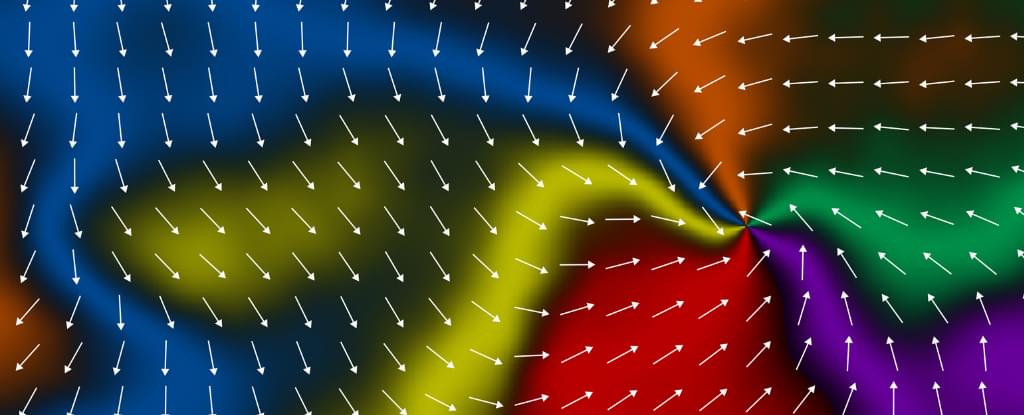An experiment in Sweden has demonstrated control over a novel kind of magnetism, giving scientists a new way to explore a phenomenon with huge potential to improve electronics – from memory storage to energy efficiency.
Using a device that accelerates electrons to blinding speeds, a team led by researchers from the University of Nottingham showered an ultra-thin wafer of manganese telluride with X-rays of different polarizations, to reveal changes on a nanometer scale reflecting magnetic activity unlike anything seen before.
For a rather mundane chunk of iron to transform into something a little more magnetic, its constituent particles need to be arranged so that their unpartnered electrons align according to a property known as spin.
